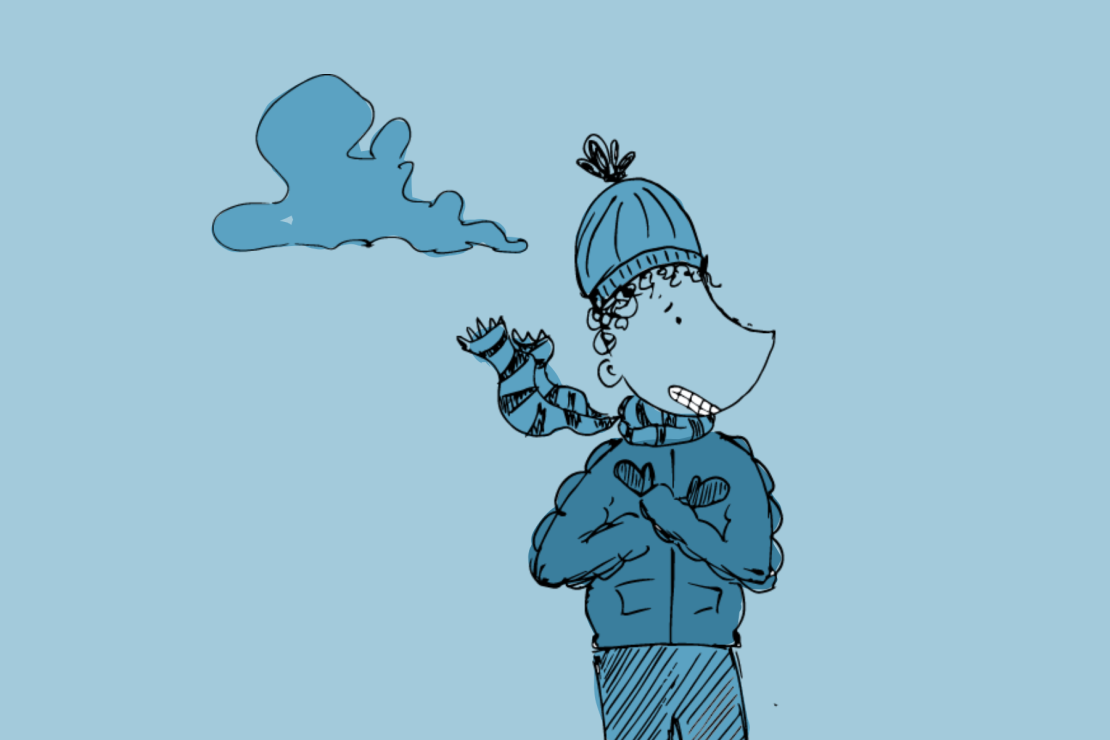The university has yet to revise protocol after student injury last winter

Illustration by Sage Blackwell.
In January 2024, a student was struck by a car on Ring Road during a snowstorm, and rushed to the hospital. Following the incident, UVic faced harsh criticism for choosing to keep campus open during the extreme winter weather, and promised they would review their protocols.
Now, as another winter looms near, not much has changed.
Sophie Taylor, the student who was injured in the collision, told the Martlet in January, “I hope this is a wake-up call for UVic.”
A student petition emerged following the accident, demanding that the university address “negligence” and justify why they didn’t opt to conduct virtual classes when a period of extreme weather had been previously forecasted.
Lane O’Hara Cooke, director of outreach and university relations for the UVSS at the time, met with UVic administration, and put forth a recommendation that the university change their approach from “when in doubt, keep the university open” to “when in doubt, close the university.”
Cooke was also concerned with how academic accommodations are handled following an accident like Taylor’s — which is typically on a case-by-case basis.
“The response needs to be more uniform,” Cooke told the Martlet in January, so that a student’s choice to stay home for their own safety during extreme winter weather isn’t affected by the attitudes of individual professors.
The UVSS representative also told the Martlet in January that Associate Vice-President Student Affairs Jim Dunsdon was “receptive” to their recommendations.
In a more recent statement to the Martlet, a UVic spokesperson explained that the university reviews their “winter weather protocols” every fall, which include decision-making criteria, operational plans, and communication processes.
According to the spokesperson, in the event of an extreme winter weather event, the university still consults with BC Transit, monitors Environment Canada forecasts, thoroughly assesses on-campus conditions, and considers the ability of custodial staff to manage snow and ice removal.
“The [executive] team works with the best information available at the time to make these recommendations,” said the spokesperson.
This is the same approach as was used in January. However, as the climate changes, the frequency, intensity, and oftentimes volatility of extreme weather events is changing, too.
ClimateReadyBC reports that “B.C. ‘s changing climate means more unpredictable weather events, including winter storms and extreme cold temperatures.”
The UVic spokesperson said the executive team at UVic recognizes that extreme winter weather events aren’t static, and makes appropriate changes to recommendations on closures as conditions evolve.
“We have seen and heard feedback from many students and understand that UVic’s response to winter weather on Jan. 17/18 was frustrating to some. We are listening carefully to feedback and will consider what we’ve heard as part of our debrief of this weather event as we look to refine our approach in the future,” said the spokesperson in a January statement.
Now, as we approach the 2024–2025 winter season, no apparent changes have been made to UVic’s decision-making approach for closure recommendations — or their academic accommodation processes for extreme weather events.







